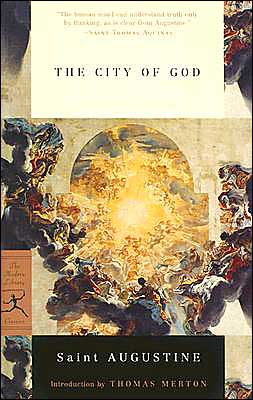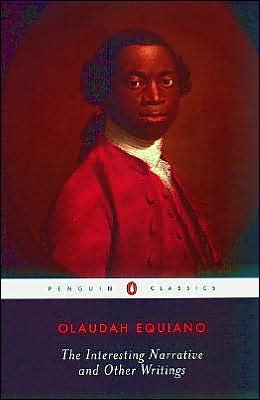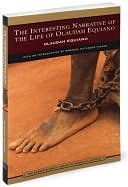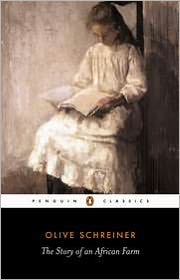City of God
No book except the Bible itself had a greater influence on the Middle Ages than City of God. Since medieval Europe was the cradle of today's Western civilization, this work by consequence is vital for an understanding of our world and how it came into being. St. Augustine is often regarded as the most influential Christian thinker after St. Paul, and this book is his masterpiece, a vast synthesis of religious and secular knowledge. It began as a reply to the charge that Christian...
Search in google:
One of the great cornerstones in the history of Christian philosophy, The City of God provides an insightful interpretation of the development of modern Western society and the origin of most Western thought. Contrasting earthly and heavenly cities—representing the omnipresent struggle between good and evil—Augustine explores human history in its relation to all eternity. In Thomas Merton's words, "The City of God is the autobiography of the Church written by the most Catholic of her great saints."This Modern Library Paperback Classics edition is a complete and unabridged version of the Marcus Dods translation.
Introduction by Thomas Merton\ \ \ Here is a book that was written over fifteen hundred years ago by a mystic in North Africa. Yet to those who have ears to hear, it has a great deal to say to many of us who are not mystics, today, in America. The City of God is a monumental theology of history. It grew out of St. Augustine's meditations on the fall of the Roman Empire. But his analysis is timeless and universal. That is to say, it is Catholic in the etymological sense of the word. It is also Catholic in the sense that St. Augustine's view of history is the view held by the Catholic Church, and by all Catholic tradition since the Apostles. It is a theology of history built on revelation, developed above all from the inspired pages of St. Paul's Epistles and St. John's Apocalypse.\ \ To those who do not know St. Augustine, the figure of the great Bishop of Hippo (the modern name of the city is Bona) may seem quite remote. And to one who attempts to make his first acquaintance with Augustine by starting to read The City of God from the beginning without a guide, the saint may remain an unappealing personality and his book may appear to be nothing more than a maze of curious, ancient fancies.\ \ St. Augustine began to write this book three years after Rome first collapsed and opened its gates to a barbarian invader. Alaric and his Goths sacked the city in 410. Rome had been the inviolate mistress of the world for a thousand years. The fall of the city that some had thought would stand forever demoralized what was left of the civilized world. Those who still took the pagan gods seriously--and it seems they were not a few--looked about them for a scapegoat uponwhich to lay the guilt for this catastrophe. The Christians had emerged from the catacombs and had been officially recognized by the convert Emperor Constantine. Nevertheless Christianity remained the object of superstitious fear on the part of many, and it was inevitable that the bad luck that had befallen the Empire should be blamed on the Catholic Church. St. Augustine took up his pen in 413 and set about proving the absurdity of such a charge. This furnished him with the subject matter for the first ten books of The City of God--a work that was written slowly, and appeared in installments over a period of thirteen years. But the topic that first engaged his attention--Christianity versus the official pagan religion of imperial Rome--is not one that will strike us, today, as a living issue. Nor was it altogether worthy of the genius of Augustine. After several years of writing he abandoned this aspect of the problem, and left it to be disposed of by a certain Orosius, who will probably never find his way into the catalogue of the Modern Library. We owe him at least a debt of gratitude for having set Augustine free to write about the problem that really interested him: the theology of the "two cities" and of the intervention of God in human history.\ \ The saint does not settle down to treat the real theme of his work until he reaches Book Eleven. And even then, he takes such a broad view of his subject that his approach to the main point seems to us extraordinarily unhurried. He pauses to solve many questions of detail. He embarks on a historical exegesis of the Old and New Testaments in order to show how the "two cities" have entered into the very substance of sacred history. Finally he completes this extraordinary panorama with a view of the final end of the two cities, and of their respective fates in eternity. How many Americans will have the patience to follow him through all of this? Those who do so will certainly find themselves profoundly changed by the experience, because they will have been exposed to a summary of Christian dogma. It is an exposition that can only be fully appreciated if it is read in the spirit in which it was written. And The City of God is an exposition of dogma that was not only written but lived.\ \ What do we mean when we say that Augustine lived the theology that he wrote? Are we implying, for instance, that other theologians have not lived up to their principles? No. That possibility is not what concerns us here. It is more than a question of setting down on paper a series of abstract principles and then applying them in practice. Christianity is more than a moral code, more than a philosophy, more than a system of rites. Although it is sufficient, in the abstract, to divide the Catholic religion into three aspects and call them creed, code and cult, yet in practice, the integral Christian life is something far more than all this. It is more than a belief; it is a life. That is to say, it is a belief that is lived and experienced and expressed in action. The action in which it is expressed, experienced and lived is called a mystery. This mystery is the sacred drama which keeps ever present in history the Sacrifice that was once consummated by Christ on Calvary. In plain words--if you can accept them as plain--Christianity is the life and death and resurrection of Christ going on day after day in the souls of individual men and in the heart of society.\ \ It is this Christ-life, this incorporation into the Body of Christ, this union with His death and resurrection as a matter of conscious experience, that St. Augustine wrote of in his Confessions. But Augustine not only experienced the reality of Christ living in his own soul. He was just as keenly aware of the presence and action, the Birth, Sacrifice, Death and Resurrection of the Mystical Christ in the midst of human society. And this experience, this vision, if you would call it that, qualified him to write a book that was to be, in fact, the autobiography of the Catholic Church. That is what The City of God is. Just as truly as the Confessions are the autobiography of St. Augustine, The City of God is the autobiography of the Church written by the most Catholic of her great saints.\ \ That is the substance of the book. But how is the average modern American going to get at that substance? Evidently, the treatment of the theme is so leisurely and so meandering and so diffuse that The City of God, more than any other book, requires an introduction. The best we can do here is to offer a few practical suggestions as to how to tackle it.\ \ The first of these suggestions is this: since, after all, The City of God reflects much of St. Augustine's own personality and is colored by it, the reader who has never met Augustine before ought to go first of all to the Confessions. Once he gets to know the saint, he will be better able to understand Augustine's view of society. Then, no one who is not a specialist, with a good background of history or of theology or of philosophy, ought not to attempt to read the City, for the first time, beginning at page one. The living heart of the City is found in Book Nineteen, and this is the section that will make the most immediate appeal to us today because it is concerned with the theology of peace. However, Book Nineteen cannot be understood all by itself. The best source for solutions to the most pressing problems it will raise is Book Fourteen, where the origin of the two Cities is sketched, in an essay on original sin. Finally, the last Book (Twenty-two), which is perhaps the finest of them all, and a fitting climax to the whole work, will give the reader a broad view of St. Augustine's whole scheme because it describes the end of the City of God, the communal vision of the elect in Paradise, the contemplation which is the life of the "City of Vision" in heaven and the whole purpose of man's creation.\ \ Continued...
Introduction7Foreword13I.The Problem of a Universal Society13II.The City of God and Universal Society21III.Christian Wisdom and a World Society33Part 1The Pagan Gods and Earthly HappinessBook I.Christianity Did Not Cause the Fall of Rome39Book II.Pagan Gods Never Protected Men's Souls66Book III.Physical Evils Were Not Prevented by the Gods78Book IV.Divine Justice and the Growth of the Roman Empire84Book V.Providence and the Greatness of Rome99Part 2The Pagan Gods and Future HappinessBook VI.Eternal Life and the Inadequacy of Polytheism119Book VII.Criticisms of Pagan Natural Theology135Book VIII.Classical Philosophy and Refined Paganism144Book IX.Pagan Deities, Demons, and Christian Angels172Book X.Christian Worship Contrasted with Platonic Theology186Part 3The Origin of the Two CitiesBook XI.Creation and the Two Societies of Angels205Book XII.Created Wills and the Distinction of Good and Evil244Book XIII.Adam's Sin and Its Consequences269Book XIV.Two Loves Originate Two Different Cities295Part 4The Development of the Two CitiesBook XV.The Two Cities in Early Biblical History323Book XVI.The City of God from the Flood to King David363Book XVII.From the Age of the Prophets to Christ's Birth378Book XVIII.The City of Man in Ancient History391Part 5The Ends of the Two CitiesBook XIX.Philosophy and Christianity on Man's End427Book XX.Separation of the Two Cities in the Last Judgment483Book XXI.End and Punishment of the Earthly City494Book XXII.The Eternal Bliss of the City of God507Index546





